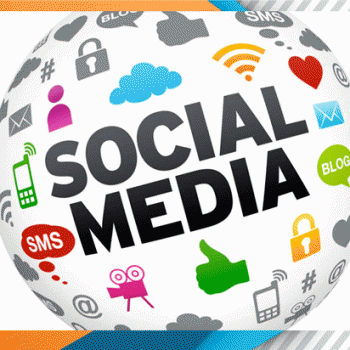
WASHINGTON ― You cannot quit Facebook or Google. It’s not possible, unless you’re willing to avoid most of the internet entirely.
The Silicon Valley giants, which are facing increasing criticism over their vast power over markets, culture, the press and politics, are building a profile of you whether you use their services or not. If you use the internet, they will track you, collect your information and try to target ads at you. They’ve acquired some of their biggest competitors, making it even harder to escape their reach. And they’re designed to manipulate human behavior to make it psychologically and emotionally difficult to opt out.
Google tracks you across the web through Google Analytics, which most websites use to track user traffic, and DoubleClick, the dominant online advertising network. Both services collect and collate data from web users without them even knowing, and then send it back to Google. Facebook, meanwhile, places “Like” buttons all across the web. Every time you see a “Like” button on a page that isn’t Facebook, it is collecting your data and sending it back to the Facebook mothership.
“You can choose not to use their app or their site,” explained Jason Kint, CEO of Digital Content Next, a trade association for digital content companies. “But they do also collect data across the web.”
Even if Facebook and Google weren’t tracking you across the web, their influence would be hard to escape because they’ve bought up so many of their competitors. If you want to chat with your friends or share photos with them without using Facebook, you can’t use either Instagram or WhatsApp, which are both owned by Facebook. The main option would be Snapchat, which Facebook also tried to purchase. Snapchat is still independent, but Facebook now routinely copies its features. If you want to watch videos shared widely across the web, can you avoid YouTube, which is owned by Google? If you’re using Waze instead of Google Maps, guess what? Waze is owned by Google. Zagat is a popular website and book for restaurant reviews and it’s also owned by Google.
Facebook becomes more useful as more and more people join it. This phenomenon, known as a network effect, also makes it hard for competitors to get off the ground: Why would you join a competing social network that no one uses?
People do not leave Facebook because everyone they know is on it, making the platform an incredibly useful way for people to keep in touch with friends, family and acquaintances. Making a decision to quit the service requires abandoning routine contact with a significant number of people.
This has been going on for years. In 2010, Facebook made significant changes to its privacy settings. But many users felt that they could not leave the site even if they objected to the changes in the site’s terms of service, the web sociologist danah boyd wrote at the time. She had just given a talk criticizing Facebook’s privacy policies and asked those who emailed her messages of support why they still remained on the social media site.
“The emails that I received privately to my query elicited the same sentiment,” boyd wrote. “People felt they needed to stay put, regardless of what Facebook chose to do. The narrative was consistent: they felt as though the[y] needed to be there. For work, for personal reasons, because they got to connect with someone there that they couldn’t connect with elsewhere.”
Facebook’s privacy rule changes resulted in a 2011 finding by the Federal Trade Commission that the company deceived its users. The company entered into a settlement that still grants the FTC oversight of the site’s privacy rules.
At the time of the settlement, Facebook had 500 million users. It now has more than 2 billion users. Google has seven different products with one billion or more users. How can you quit that?
Facebook and Google also play on our need for social approval and dispense rewards in a calculated manner to keep us hooked, former Google design ethicist Tristan Harris argues.
“They control the dial, the technology companies control the dial for when and how long your profile photo shows up on other people’s newsfeeds, so they can orchestrate it so that other people more often end up liking your profile photo over a delayed period of time, for example, so that you end up having to more frequently come back and see what the new likes are,” Harris said in a Big Think speech in July. “And the problem is that they don’t do this because they’re evil, they do it because, again, they’re in this race for our attention.”
If users can’t really quit Facebook or Google, that raises questions of government regulation. Are they monopolies? Utilities? What is to be done?
There are remedies available. The federal government could intervene and force the companies to spin off the competitors they purchased. (The FTC has already approved many of these acquisitions, but that doesn’t mean new members couldn’t change their minds.) The large platforms that operate as both content providers and ad markets for that content could be forced to separate these two operations. And U.S. lawmakers and regulators could look to Europe, where new rules on privacy that are set to go into effect in 2018 will severely limit the way web platforms track and collect data from users and nonusers alike.
If the government is to regulate the Silicon Valley giants it will need to decide what type of regulation it will undertake. It’s important to decide whether their products are a monopoly and should be broken up or if it is a utility and should be regulated as such. While this hasn’t happened under the former Obama or current Trump administration the movement to reign in monopolies is gaining steam among some Democrats.
END

Be the first to comment